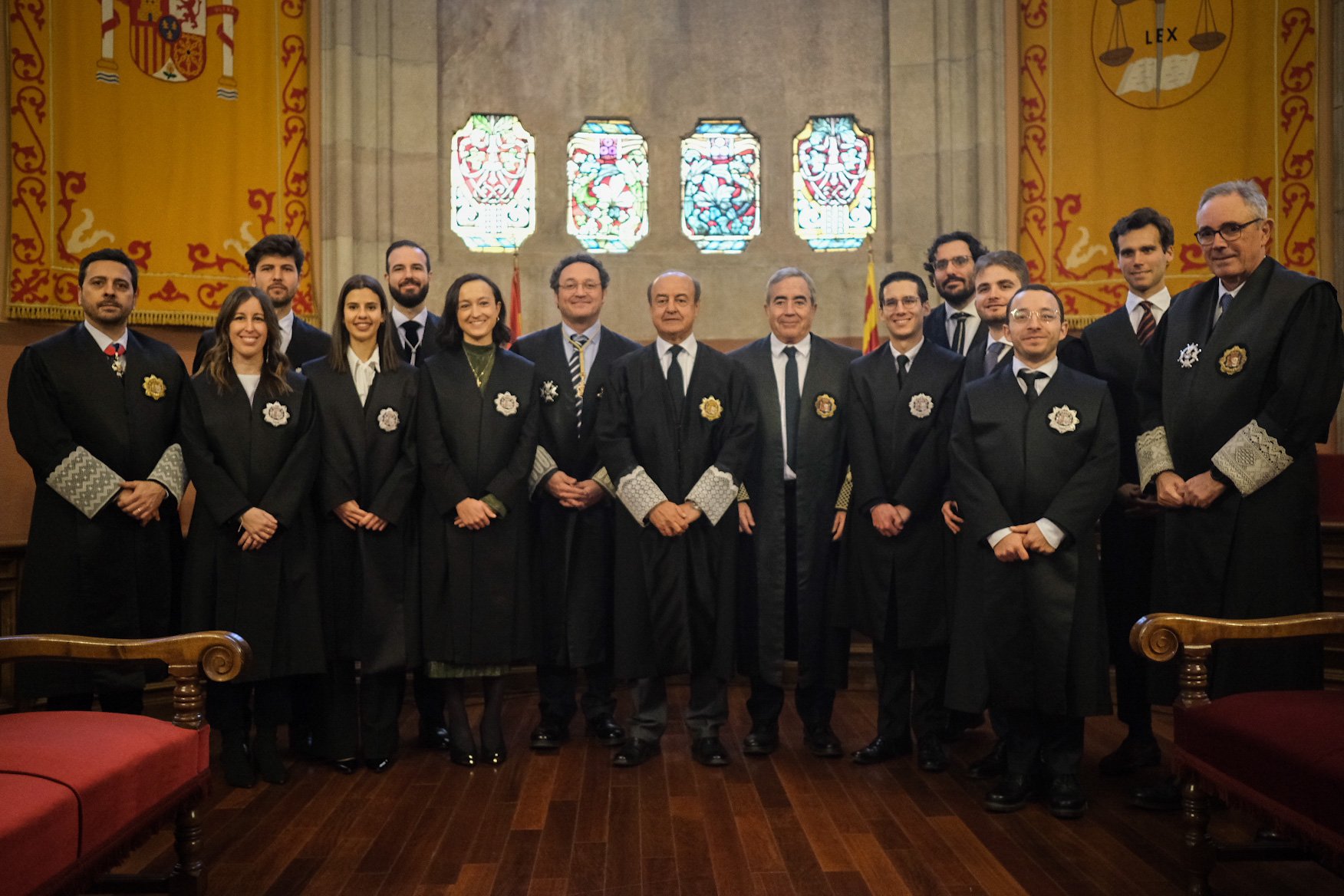This Thursday sees the entry into force of one of the Spanish law changes of 2022 which sparked most controversy: the reform of the Penal Code that eliminated the crime of sedition and modified that of misuse of public funds. It was a reform agreed by the Catalan pro-independence party ERC and the governing Spanish Socialists (PSOE) which reduces the penalties faced by some high officials of the Catalan government, accused of the misuse of public funds in the organization of the referendum of 1st October 2017. Sources in the public prosecution service have announced this Tuesday in Barcelona - at a swearing-in ceremony for new prosecutors, presided over by prosecutor general Álvaro García Ortiz - that they will have to issue a circular in order to unify the criteria used in the interpretation of the reformed crime of misuse of funds, a fact that will delay the presentation of the prosecution's indictment against two ERC politicians, Josep Maria Jové and Lluís Salvadó. The indictment was set to be delivered next week to the High Court of Catalonia (TSJC), where they are to be tried together with current Catalan culture minister Natàlia Garriga, as the hearing of cases against those involved in the Catalan independence process goes on. The reform of the Penal Code will also affect another group of Catalan government officials, who are being prosecuted for misuse of funds in in the Barcelona Investigative Court number 13.
In a chapel in Barcelona's Palau de Justicia, the president of the TSJC, Jesús María Barrientos, opened the swearing-in ceremony for the 10 new prosecutors (in this group, the majority are men) who will based in different court centres in Catalonia, such as Barcelona, Terrassa, Blanes, Olot and La Seu d'Urgell. The Spanish prosecutor general, Álvaro Garcia Ortiz, seated in a chair and in a relaxed tone, affirmed to the new prosecutors that "they must never doubt that they must be on the side of the law because the law is an expression of democracy". He also invited them to "dialogue and discuss in their day-to-day work", despite the fact that the prosecution service is a hierarchical body. Of Catalonia and its own language, he said nothing.

A 10-day deadline
The court to hear the two ERC politicians charged for their alleged role in organizing the referendum is formed by the TSJC president, Jesús María Barrientos, along with judges Carlos Ramos and Fernando Lacaba. Before the Christmas holidays, the prosecutors asked for more time to present the indictment, and the court granted 10 days to both the public prosecutors and the lawyers for far-right Vox, who are mounting a private prosecution. That deadline runs out at the end of next week, but given the need for the prosecutors to unify criteria over the crime of misuse of funds, which has been rewritten by the legislature, they are expected to ask the court for more time to present their brief. This is not usual practice, but in these circumstances, with a change in the law, it is normal.
Sources from the prosecutor general's office detailed that they must - "quickly, but at the same time calmly" - analyze how the new misuse of funds law is to be interpreted because, in addition to all new accusations, it will apply to those convicted for actions between 2015 and 2019, the period affected by the People's Party (PP) modification of this crime. Those thus convicted can request a review if the law is now more favourable to them. Spain's anti-corruption prosecutors do not hide that they are uneasy about what it might represent for some convicts, especially those found guilty in corruption cases, including those connected to the PP. The new definition provides for lighter sentences for defendants whose misuse of funds action did not lead to personal enrichment of themselves or a third party, which is the case for those accused of spending Catalan public money on a referendum.
In the main image, group photo of the new prosecutors assigned to Catalonia with senior prosecutors and the president of the TSJC, among others. / Photo: Carlos Baglietto

